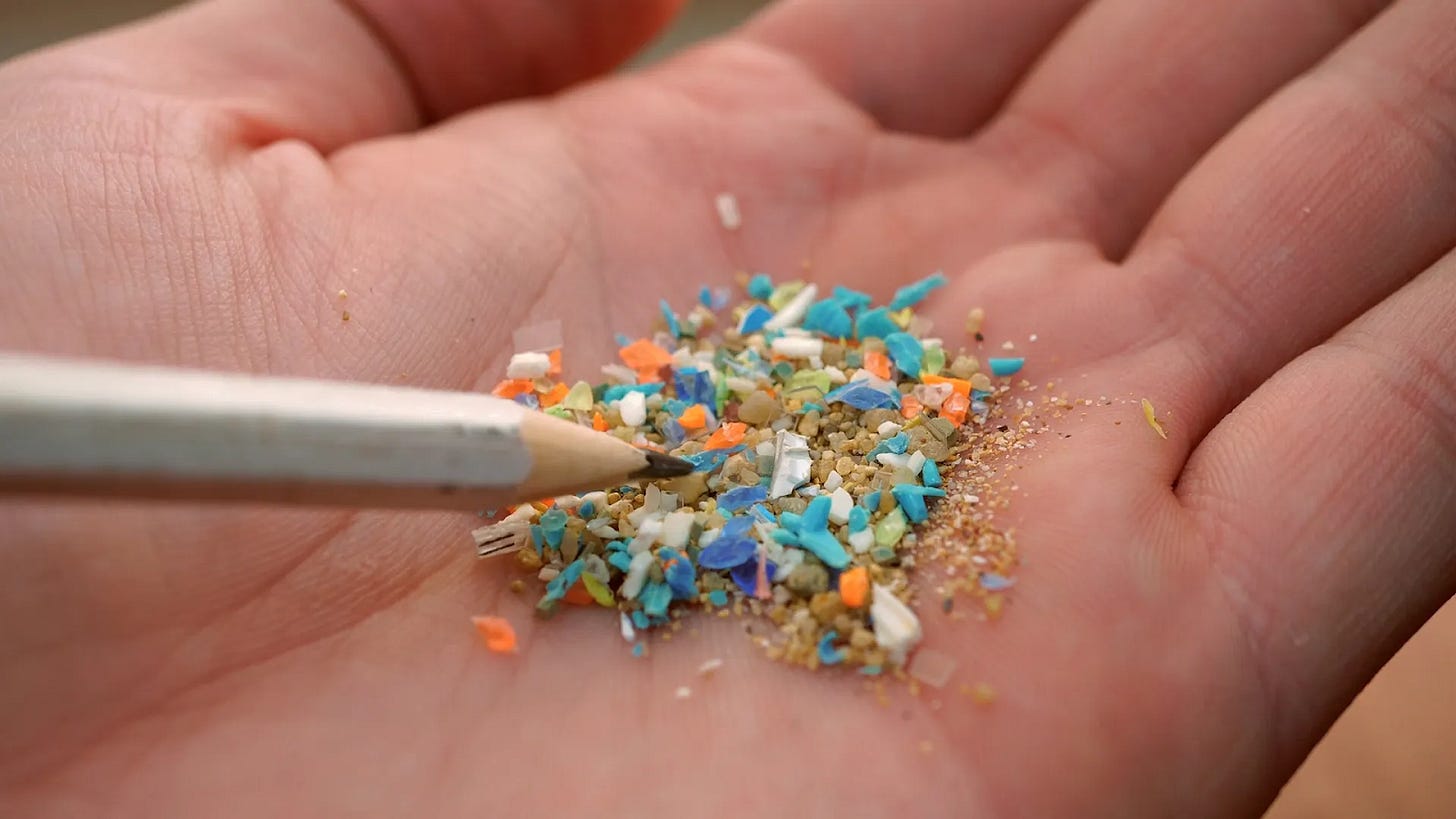The Microplastics Crisis
Written by Azzy Xiang
Microplastics consist of the most crucial environmental challenges that we are currently facing on the global stage. These tiny plastic particles, less than five millimeters in size, have infiltrated ecosystems worldwide, raising serious concerns about their impact on human health. As microplastics enter our food and water supply, understanding their implications becomes critical.
So, what are microplastics and how do they impact us in harmful ways?
Microplastics originate from various sources, including the breakdown of larger plastic debris, synthetic fibers from clothing, and microbeads in personal care products. Once released into the environment, they are nearly impossible to eliminate. Studies have found microplastics in our oceans, rivers, and even the air we breathe. Alarmingly, they have also been detected in human feces, indicating widespread ingestion. Who knew that there was plastic in your poop?
The health risks associated with microplastics are still being researched, but preliminary studies suggest a plethora of potential dangers. Microplastics can carry toxic chemicals and pollutants, which may leach into our bodies. These substances have been linked to various health issues, including hormonal disruptions, inflammation, and even cancer. The long-term effects of chronic exposure to microplastics remain a suspenseful question, raising various concerns about their cumulative impact on human health.
It’s also known that generically vulnerable populations, such as children and those with existing detrimental health conditions, may be at greater risk. The potential for microplastics to disrupt development and exacerbate health issues necessitates urgent attention from researchers and policymakers alike. Addressing this crisis requires concerted efforts to reduce plastic production and consumption, alongside comprehensive research into the health implications of microplastics. By fostering a sustainable approach to plastic use, we can protect not only the environment but also our health. You can contribute by using recyclable products and disposing of waste responsibly, so if you’d like to contribute to this cause, start today!
Written by Azzy Xiang from MEDILOQUY


